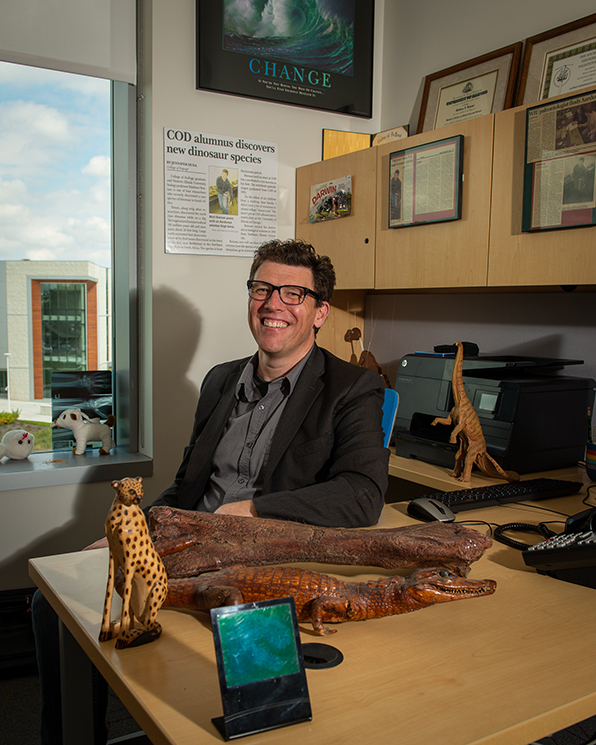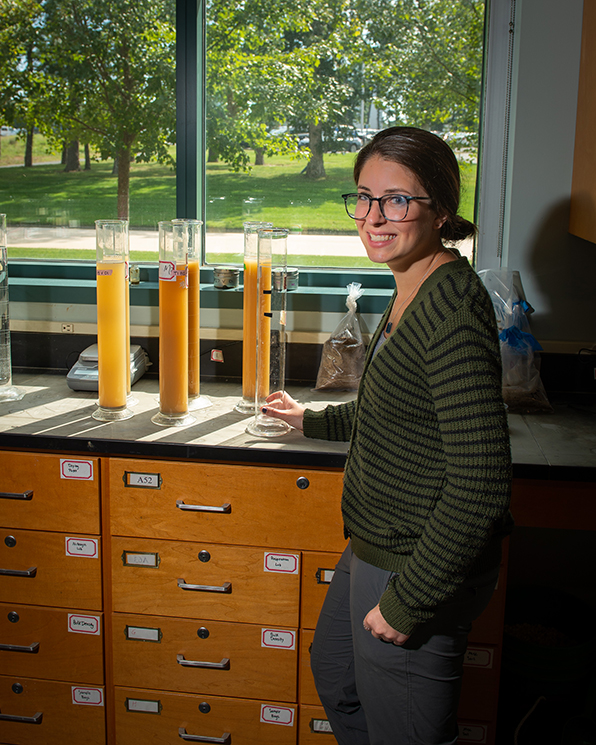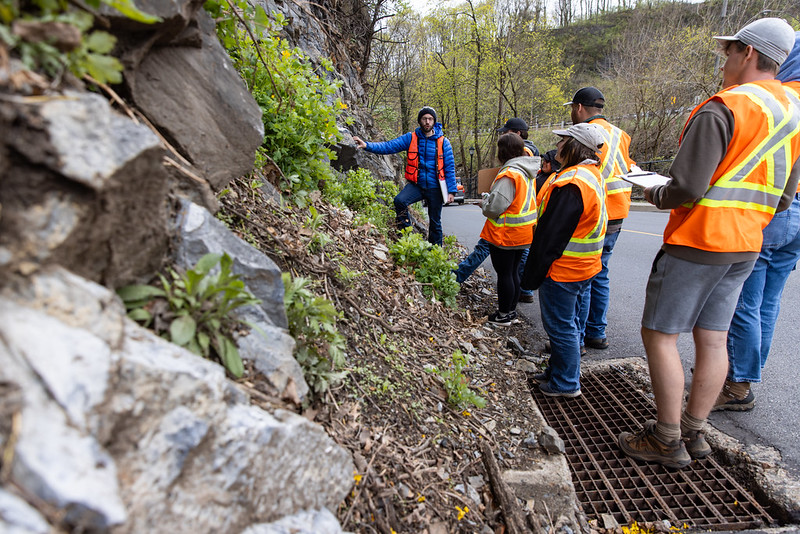Geology
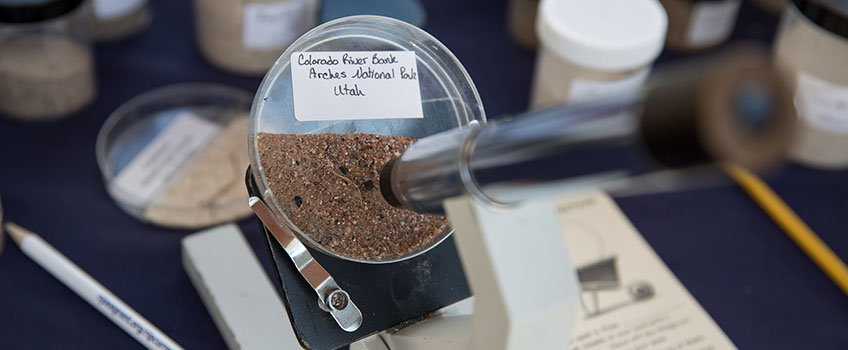
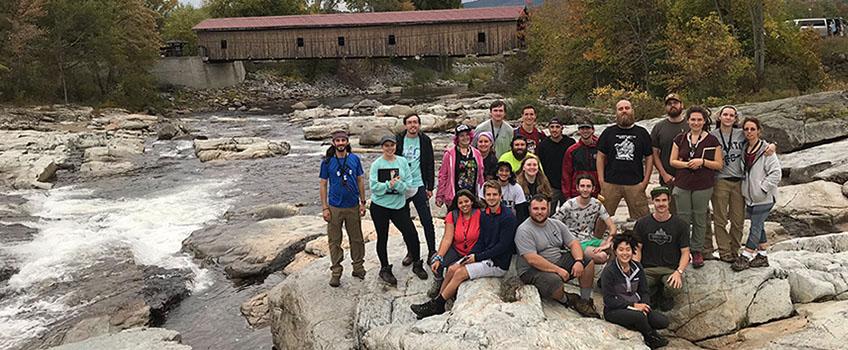
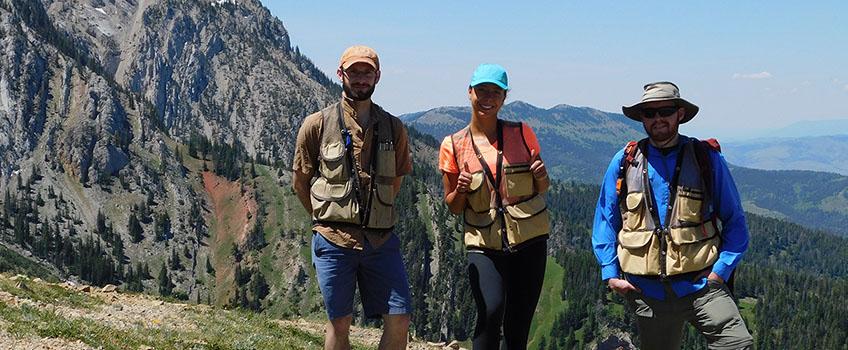
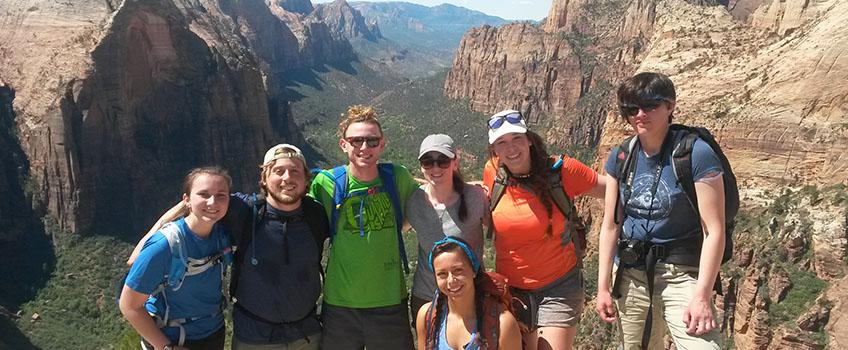
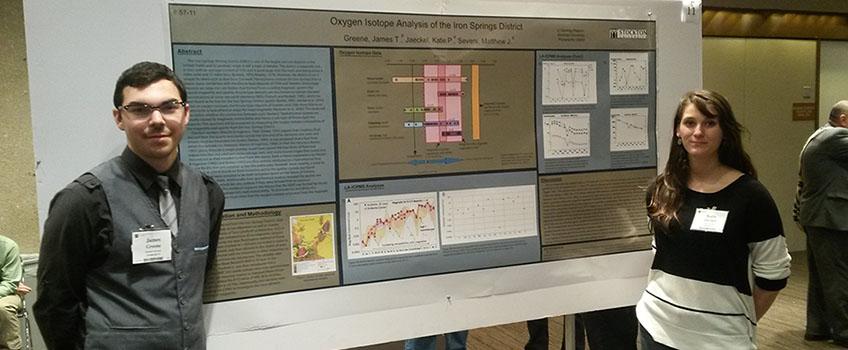
Stockton’s Geology curriculum provides students with a solid foundation in the basic sub-disciplines of geology, so that students have the background to pursue a career in almost any area of geology.
Beyond the basic core, students may concentrate their studies in subjects as traditional as earthquakes, volcanoes, minerals, and sedimentary rocks or in applied topics such as environmental geology, coastal processes, economic geology, hydrology, and water resources. Geology students may also develop a concentration in hydrogeology or marine geology.
About the Program
The Geology curriculum stresses field experience, hands-on laboratory work, independent study projects, and internships. A key aspect of all geology classes is the engagement of students with the world around them through fieldwork. There is no better laboratory for the geosciences than the outdoors! These encourage students to develop initiative and professionalism while they provide practical experience and enhance the students’ understanding of local geology, the region, and the world.
Students may earn either a Bachelor of Science or Bachelor of Arts degree. Both degree options are based on a curriculum that provides students with a solid foundation in the traditional sub-disciplines of geology. These include courses in mineralogy, petrology, field methods, structural geology, sedimentology, and stratigraphy. Both require students to complete either an internship that can be with consulting companies, government agencies, or natural resource industries, or conduct independent research with a faculty member. Either opportunity aids students in getting additional hands-on experiences that benefit them for their future careers and/or graduate school.
Why Geology "ROCKS"!
Learn more about Ternova in the 2021 The Essential Elements article A Day in a Life of a Geologist ROCKS!. And don't miss other alumni stories in our current e-zine edition!
Alumni Success
Geology alumni are currently employed by a diverse group of companies and agencies in a variety of geoscience disciplines. These include:
- NJDOT
- NJDEP
- NASA Goddard Space Flight Center
- Chevron
- Southwestern Energy
- Arcadis
- TRG
- Langan
- EMSL, Inc.
The geology program at Stockton has provided me with exceptional knowledge of the subject, as well as practical, hands-on experience. One of my favorite aspects of the program are the field trips where students get direct, first-hand experience learning about geologic processes.
Read Daniel's whole story
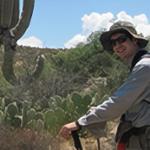
B.S. Geology
I often look back on my life to see if some key moments or choices had a lasting impact on me. Choosing to major in geology at Stockton has single-handedly been the best choice I have ever made in my entire life. I cannot imagine where I would be if I hadn’t taken the chance to switch majors.
Read Katie's whole story
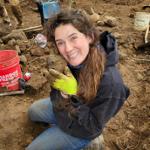
B.S. Geology
Stockton geology heavily emphasizes fieldwork, a crucial component for the geological industry. This includes day trips, weekend trips, and multiple week-long trips across the country to places like Colorado, Utah, Arizona, and others, allowing students to apply what they’ve learned in lectures and labs in the field.Read Jame's whole story
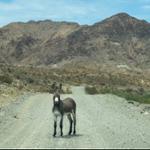
B.S. Geology
Course material and research gave me the skills and knowledge I needed to excel and stand out in my field. I learned how to properly research topics and how to implement new information in the projects I work on in my industry.
Read Andrew's whole story

B.S. Geology
At Stockton, I had the pleasure of being involved in research with three faculty members and developed my own research project senior year. Being so involved with research as an undergraduate really aided me in becoming more confident in myself as a person and as a scientist.
Read Ally's whole story

B.S. Geology and Oceanography
The immersive experience that being a geology student provided was irreplaceable. I was able to go on many field trips and participate in research which prepared me very well for graduate school.
Read Shannon's whole story
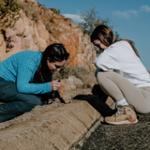
B.S. Geology
I cherish my Stockton geology experience. It helped me grow into the professional I am today by providing me with the necessary knowledge in my field of work, and it was a great social experience as well as completing field and lab projects with other students. I can not praise the geology program enough.
Read Glenn's whole story

B.S. Geology
Curriculum
The Geology (GEOL) program draws on the interdisciplinary strengths of the School of Natural Sciences and Mathematics, which offers degree programs and courses in Environmental Science, Geology, Marine Science, and Sustainability. The curriculum provides students with a solid foundation in the basic subdisciplines of geology, so that students have the background to pursue a career in almost any area of geology. Beyond the basic core, students may concentrate their studies in subjects as traditional as earthquakes, volcanoes, minerals, and sedimentary rocks or in applied topics such as environmental geology, coastal processes, economic geology, hydrology, and water resources. Geology students may also develop a concentration in hydrogeology or marine geology.
Prospective freshman or transfer students can use the Curriculum & Transfer Equivalency tool below. In addition, the program degree map provides valuable degree information and is a guide to assist in planning academic coursework, but should not substitute academic advisement.
Coursework
Degree Works Curriculum & Transfer Equivalency Tool
To see the curriculum for your area of interest, you’ll use the web program, Degree Works. This service is accessible even if you are not currently a student with Stockton University.
Current students exploring the various paths towards degree completion should access the "what if" option in their Degree Works through the portal.
Instructions on How to Use Curriculum Tool
Faculty

Jeffrey Webber
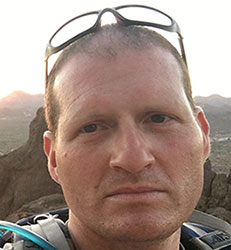
Matthew J. Severs


Jessica Hallagan
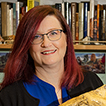

Susanne Moskalski

Catherine A. Tredick
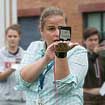
Emma L. Witt

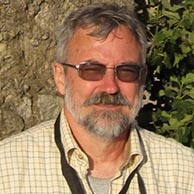
Special Opportunities
The Arts and Sciences Building houses Environmental Sciences and Geology. Its facilities include a soil and hydrology lab; paleomagnetics laboratory; chemical and biological laboratories; greenhouse, rock cutting, polishing, and thin sectioning lab; geological and biological collections; a computer cartography room; and computer laboratories, some of which are equipped with ArcGIS. The Marine Geology specialization also offers access to the research station at the Marine Field Station and its facilities, including research vehicles (boat), side scan sonar, marine geochemistry, sediment sampling, and water quality instrumentation and laboratories. The required internship or research project also enables students to utilize the equipment present here at Stockton and sometimes instrumentation and techniques in conjunction with other companies, organizations, and institutions. Research projects are typically presented by the students at the Geological Society of America’s Northeastern Conference.
The Geology Program supports a vigorous field program that provides experience with field techniques in regular coursework with mandatory weekend field trips for most upper-level classes. Special courses in the past have also included summer field trips to the Rocky Mountains, Florida, China, and other parts of the world. Additionally, the student-run Stockton Geology Club takes a 2-3 week-long trip in May to places across the country, including sites such as the Grand Canyon, Zion National Park, Big Bend National Park, and even up to the Atlantic Provinces of Canada.
An important part of the geosciences is experiencing the results and processes of the Earth in its natural setting – the field!
Since geology is the study of the earth in all its aspects, one of the best places to learn is out in the field. As such, Stockton Geology puts a premium on field trips at all levels, from the introductory classes through upper-level core classes and electives, and also on research trips.
Course field trips include a number of day trips throughout the greater New Jersey area (eastern Pennsylvania, southern New York, Delaware, and Maryland) for all of the classes. Extended weekend trips for upper-level core and elective geology classes take students through the Adirondacks of New York, central Pennsylvania, Vermont, Connecticut and Rhode Island, and Tennessee.
For students who choose to do research with one of the faculty members, most projects will involve some amount of field work. These can be “local” projects along the Jersey Shore or in northern New Jersey and southern New York, or they can be much further away in places as diverse as Montana, Rhode Island, Arizona, Saskatchewan, Maine, or Washington.
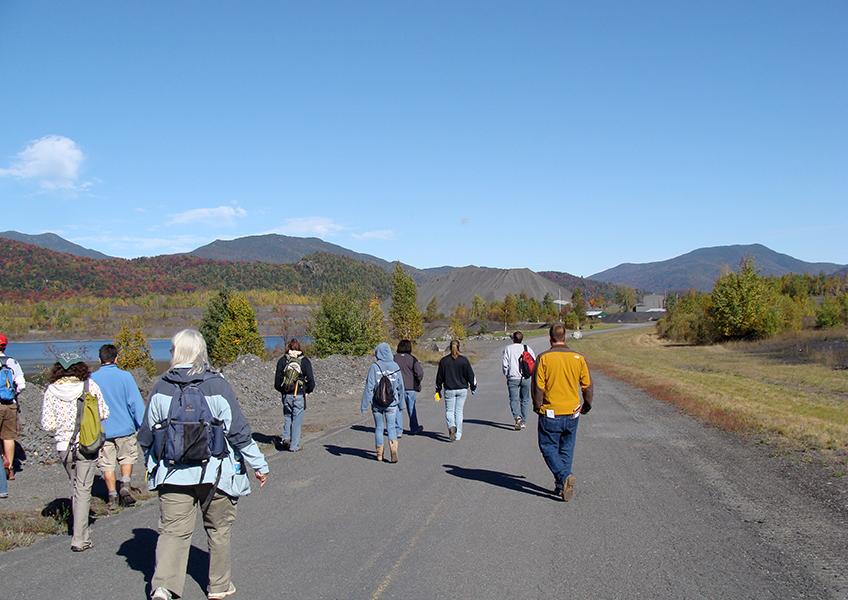
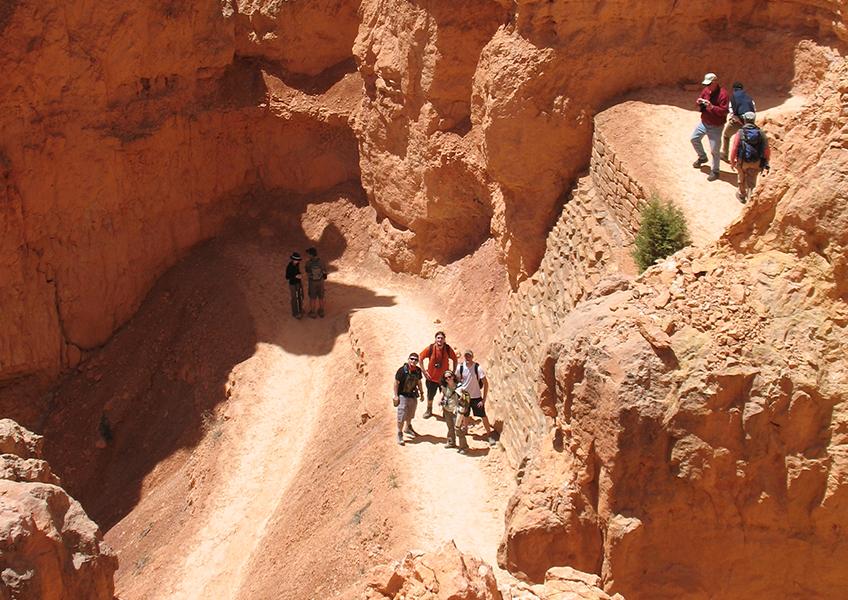
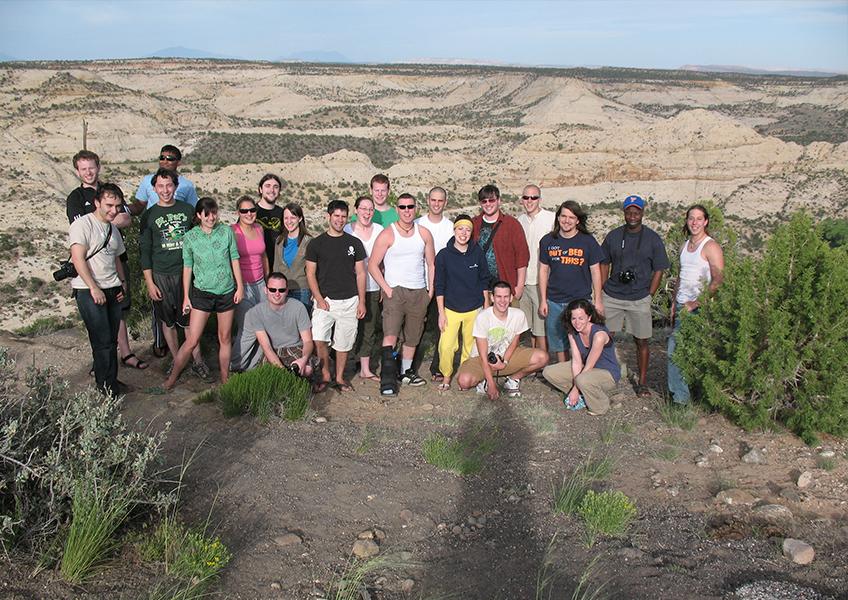
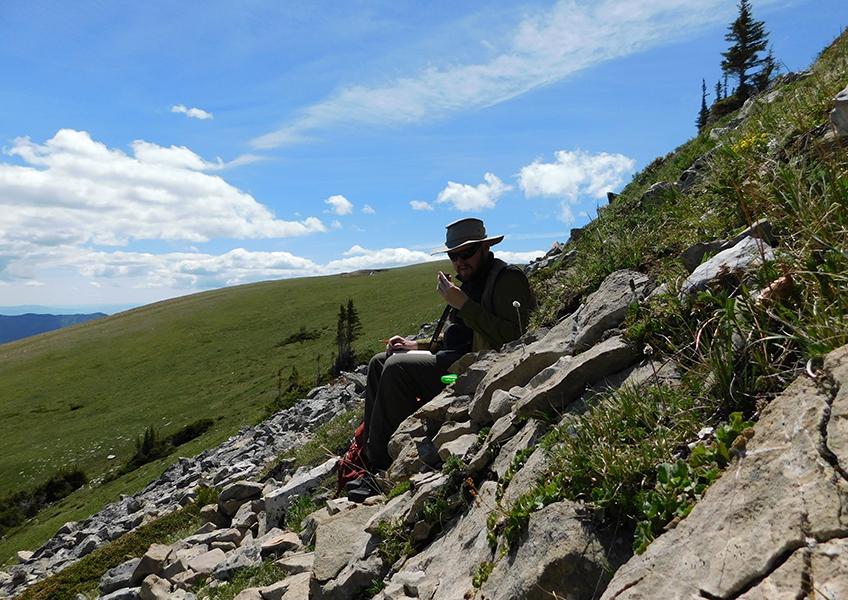

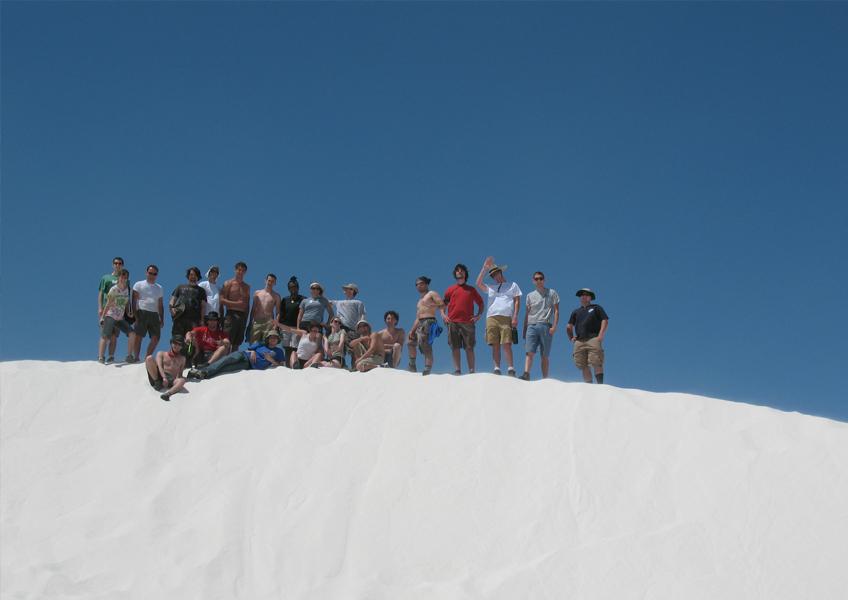
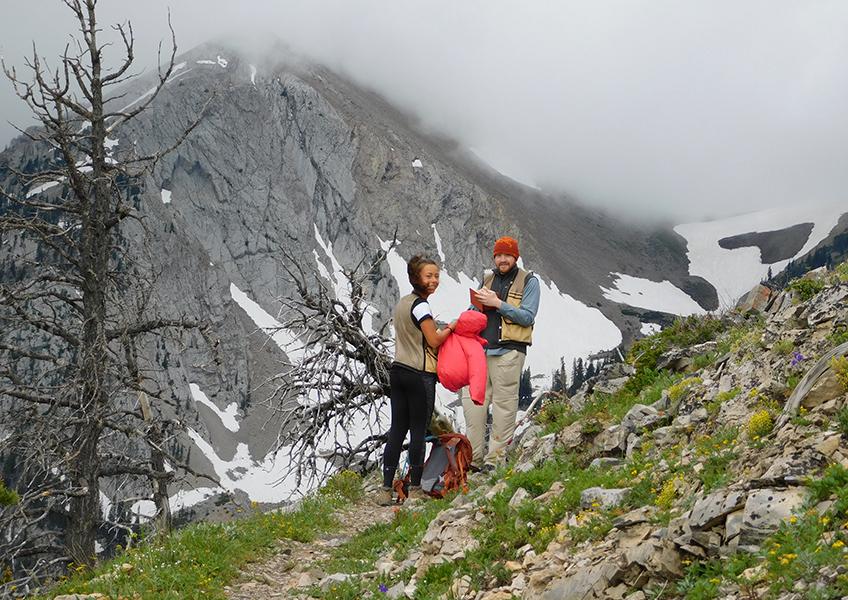
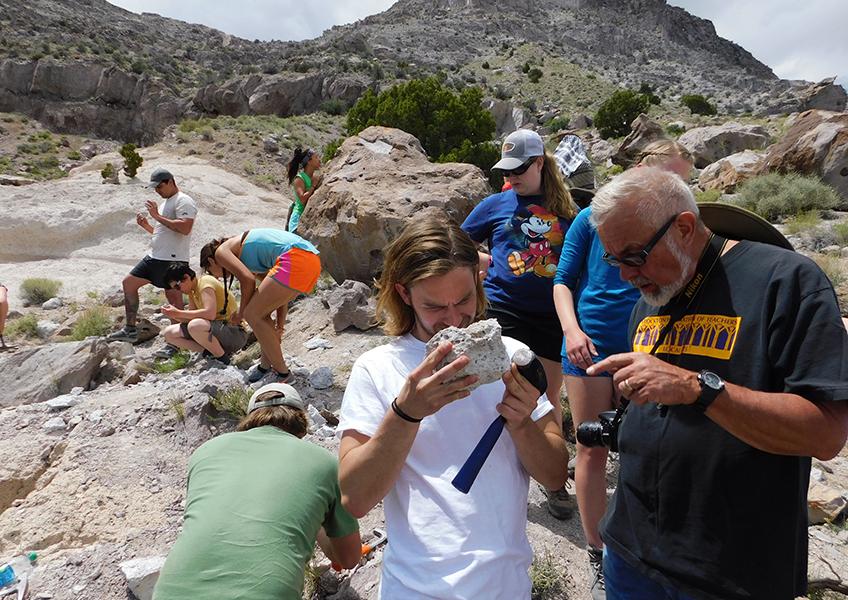
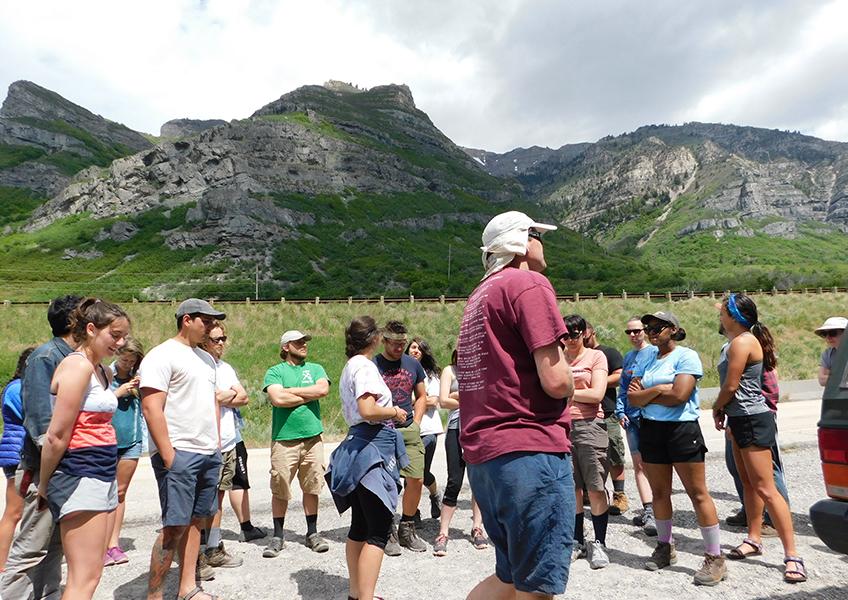
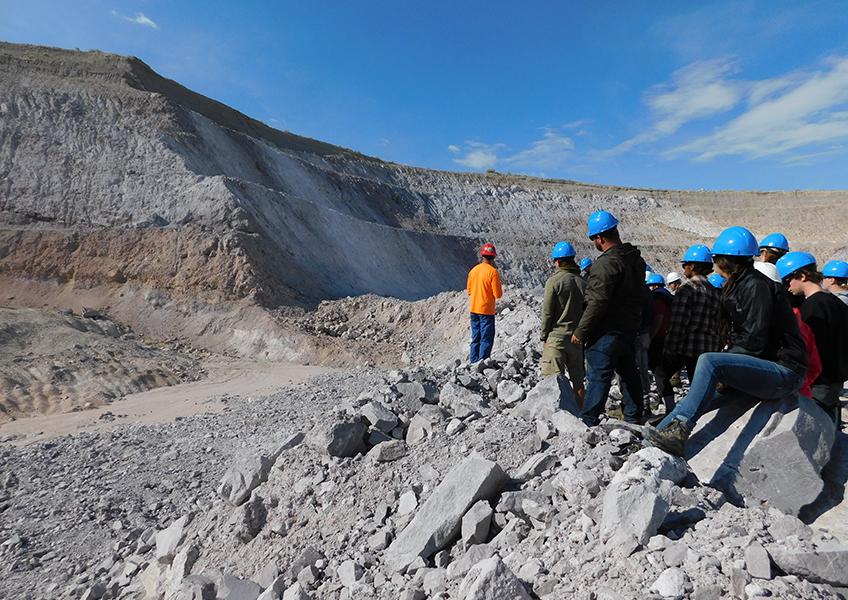
Geology Students

Geology Students
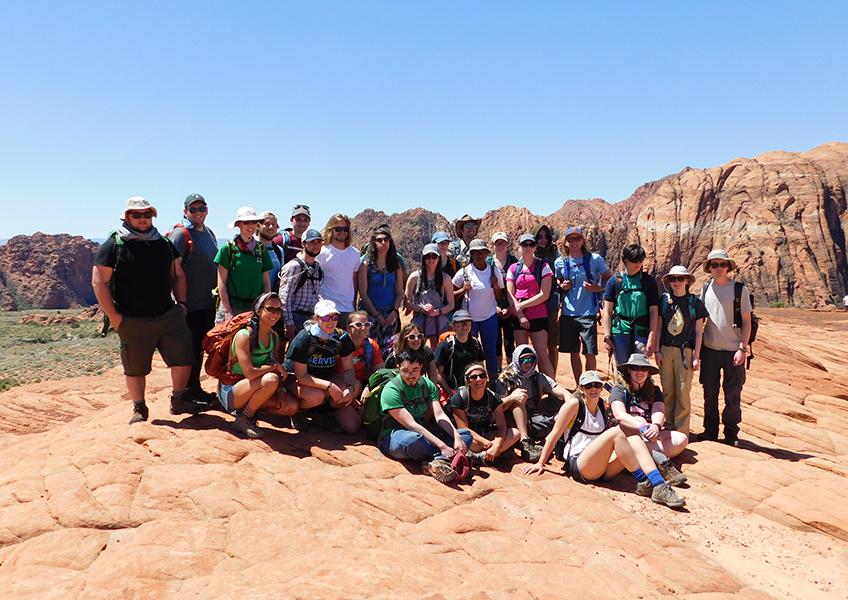
Geology Students

Geology Students
Careers
Recent studies indicate that the majority of geology graduates establish careers related to their major. They fill positions in industry; in state, federal, and local governmental agencies; in schools; and in other organizations, including engineering, insurance, consulting, and mining, oil, and natural resource management and exploration companies.
Sample list of potential careers:
The connections you made with your professors and preceptors are invaluable resources for your career planning. Beyond providing assistance on coursework and scheduling, they can give you guidance in planning for your post-college career.
In addition, we have a student Career Center that is available to guide you through your career development journey - from CV writing, interview prep or general guidance.
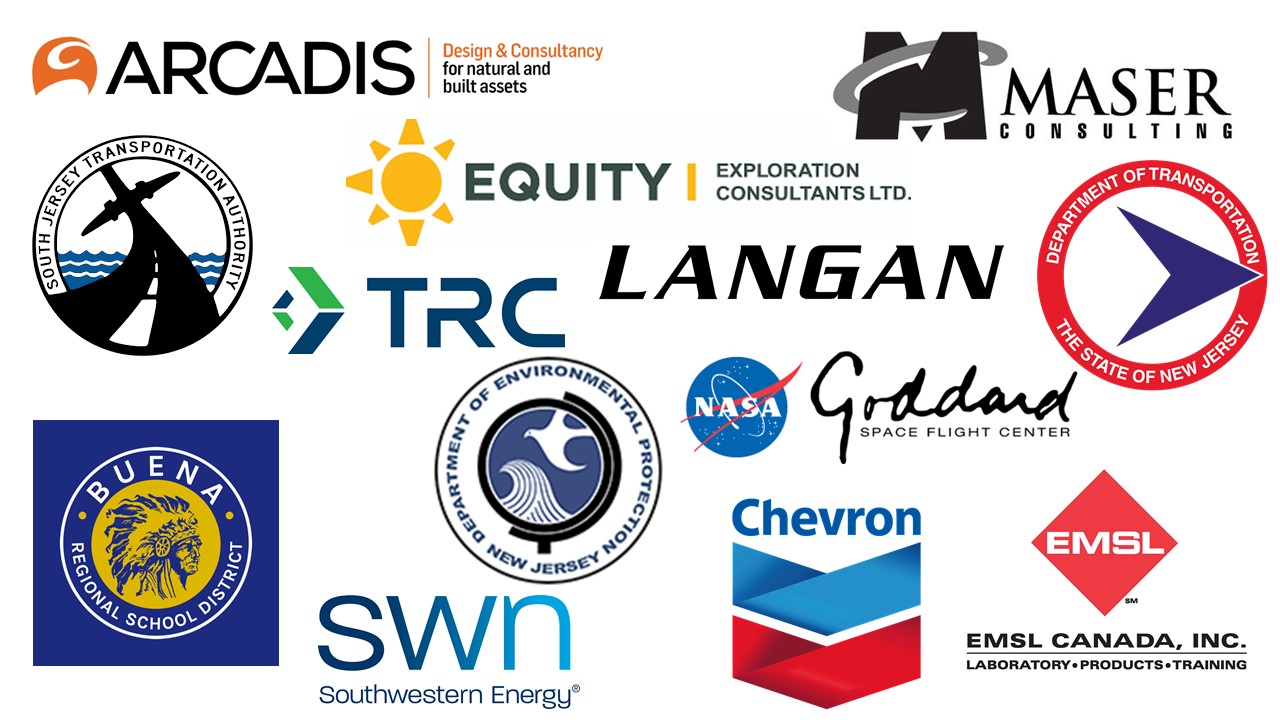
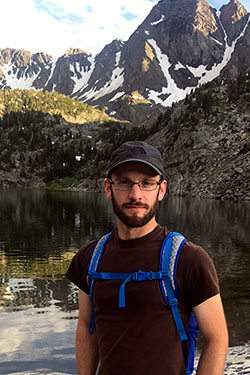
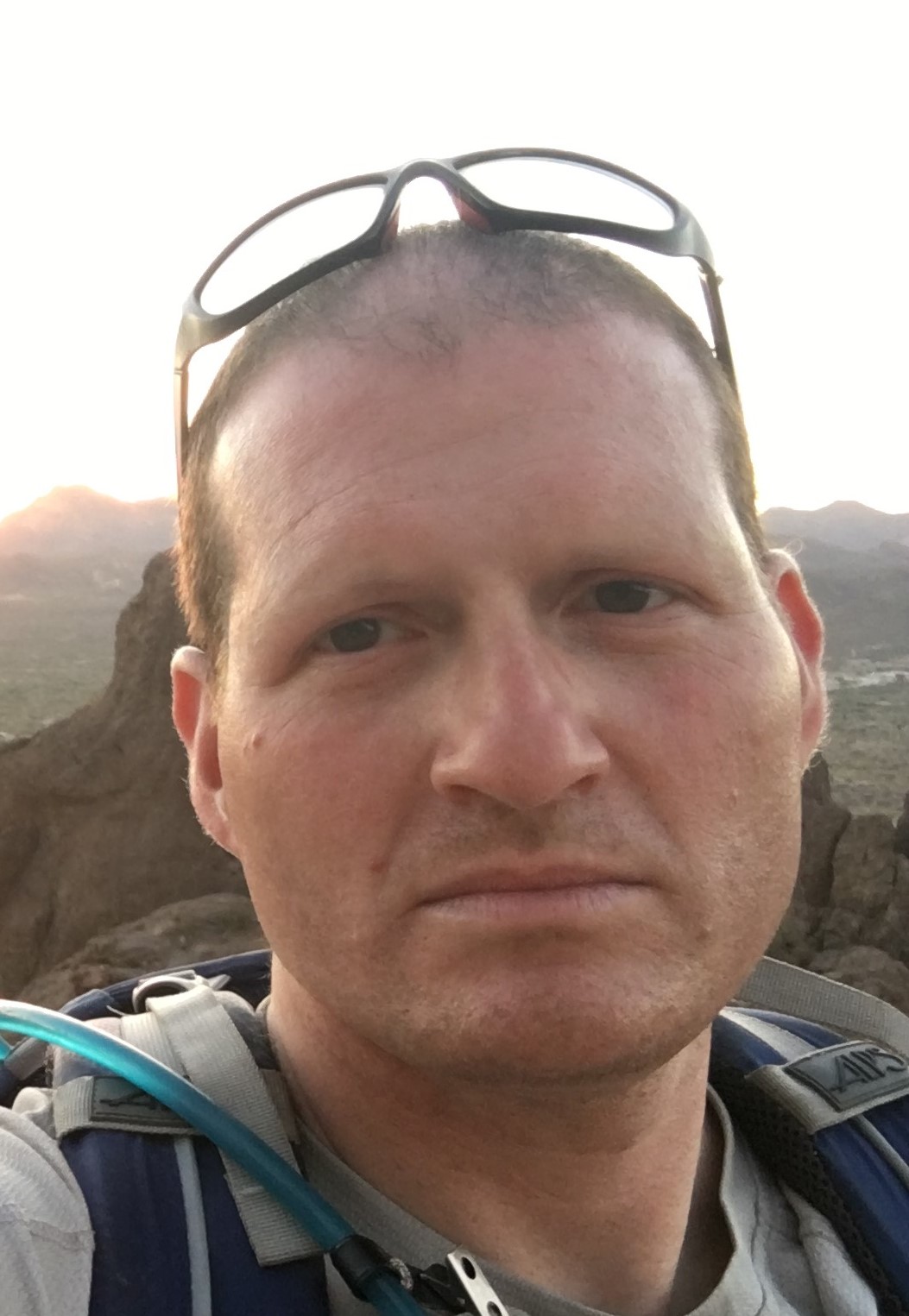 .
.